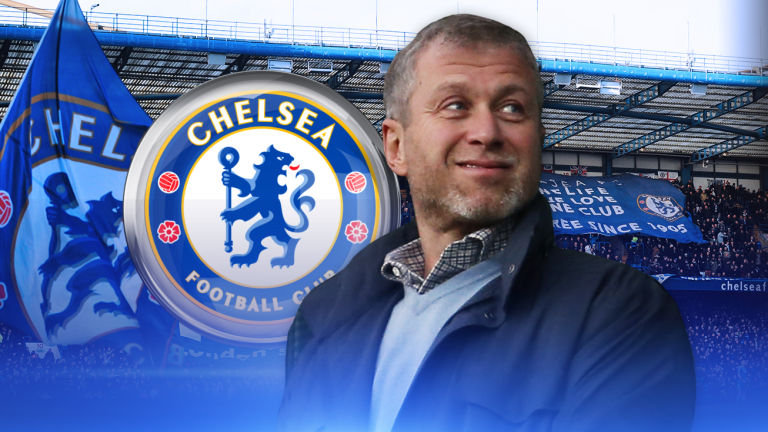
In
the wake of Chelsea's decision to part company with Jose Mourinho, we look
at owner Roman Abramovich's history of mid-season sackings and whether the
moves have reaped dividends.
Summer switches of manager have been a familiar feeling for Chelsea fans
with Claudio Ranieri, Avram Grant, Guus Hiddink, Carlo Ancelotti and Rafa
Benitez all making way at the end of a season.
But the decision to sack Mourinho is the fifth time Abramovich has opted to
change the coach during a campaign. Here we look at what happened on the
previous occasions…
Jose Mourinho, September 2007
What happened? Mourinho had delivered the Premier League title to Chelsea in
each of his first two seasons and while he'd had to settle for second spot
in the previous campaign, he'd still won both domestic cup competitions. But
tensions were mounting behind the scenes as the likes of Frank Arnesen (head
of youth development) and Avram Grant (director of football) jockeyed for
position.
As a result, it didn't require too much of a dip in form to bring matters to
a head. A defeat at Aston Villa was followed by a goalless draw at home to
Blackburn, so when Chelsea were unable to beat Norwegian side Rosenborg at
Stamford Bridge in the Champions League, the most successful manager in the
club's history was discarded.
What happened next? Grant took over for the remainder of the season and
results soon picked up. Indeed, a ninth straight win in January equalled the
club's record run. He remarkably led the club to the Champions League final,
too. But he was destined to be Chelsea's nearly man, losing out to
Manchester United on penalties in Moscow, after seeing his side beaten in
extra-time in the League Cup final against Tottenham. He left at the end of
the season.
Luiz Felipe Scolari, February 2009
What happened? Scolari boasted a formidable reputation having won the World
Cup with Brazil in 2002 and took Portugal to the final of the European
Championship in 2004. The optimism surrounding his arrival endured well into
November too, with Chelsea top of the Premier League table more than a third
of the way through the campaign.
However, Scolari stuttered over Christmas - winning only one of six matches
- and there were persistent claims that players were unconvinced by his
methods. Liverpool completed the double over Chelsea in February and when
the team played out a goalless draw against Hull at Stamford Bridge the
following week, Abramovich had seen enough.
What happened next? Chelsea brought in Russia boss Guus Hiddink on a
short-term basis to see out the season. The Dutchman proved a big hit with
the players, losing only once and he still boasts the best win percentage of
any manager in Chelsea history. Hiddink had an FA Cup win to show for his
efforts but was denied Champions League glory after a controversial
semi-final defeat to Barcelona.
Andre Villas-Boas, March 2012
What happened? Chelsea paid £13.3m in compensation to release the
33-year-old Villas-Boas from his contract at Porto in June 2011. Mourinho's
former assistant had only two years of managerial experience behind him, but
he signed a three-year contract in west London and was charged with
overhauling an ageing squad.
His reign started with four wins and a draw from his first five games, but
their form began to deteriorate as Chelsea's senior players became
disillusioned by his methods. The pressure intensified after a 3-1 Champions
League defeat to Napoli in which Ashley Cole and Frank Lampard were
controversially left out, and Abramovich wielded the axe following a 1-0
loss to West Brom two weeks later.
What happened next? Chelsea appointed Villas-Boas' assistant Roberto Di
Matteo on an interim basis. Dressing room harmony was restored and the likes
of John Terry, Lampard and Cole were immediately reinvigorated. Their
sixth-placed Premier League finish was the lowest in 10 years, but their
success in cup competitions more than made up for it.
They triumphed in the FA Cup with a 2-1 win over Liverpool at Wembley, and
that was followed by their remarkable Champions League final success in
Munich. After famously overcoming Barcelona in the semi-finals, Didier
Drogba headed a late equaliser against Bayern Munich before Chelsea won the
penalty shoot-out.
Roberto Di Matteo, November 2012
What happened? The Chelsea board came under heavy pressure to appoint Di
Matteo permanently after Chelsea's Champions League triumph. There were
doubts about his experience and tactical acumen, but he was handed a
two-year contract a month later.
Chelsea started the season strongly, but their form dipped dramatically in
October. Di Matteo was sacked after a 3-0 defeat to Juventus in the
Champions League. That defeat left them with just one win from eight games,
and Di Matteo's refusal to start £50m signing Fernando Torres was thought to
be the final straw.
What happened next? Former Liverpool manager Rafael Benitez was Abramovich's
next interim appointment. The Spaniard was unpopular at Stamford Bridge
given his past rivalry with Mourinho and disparaging comments he had made
about the club's supporters. In March he angrily hit out at his "interim"
title and announced he would be leaving the club at the end of the campaign.
Benitez was unable to inspire a Premier League title challenge as they
finished third, but he fared better in the cups. Chelsea reached the
semi-finals of the FA Cup and the League Cup, and they finished the campaign
by lifting the Europa League after Branislav Ivanovic's late header sealed a
2-1 win over Benfica in the final.
 top
top top
top In
the wake of Chelsea's decision to part company with Jose Mourinho, we look
at owner Roman Abramovich's history of mid-season sackings and whether the
moves have reaped dividends.
In
the wake of Chelsea's decision to part company with Jose Mourinho, we look
at owner Roman Abramovich's history of mid-season sackings and whether the
moves have reaped dividends.